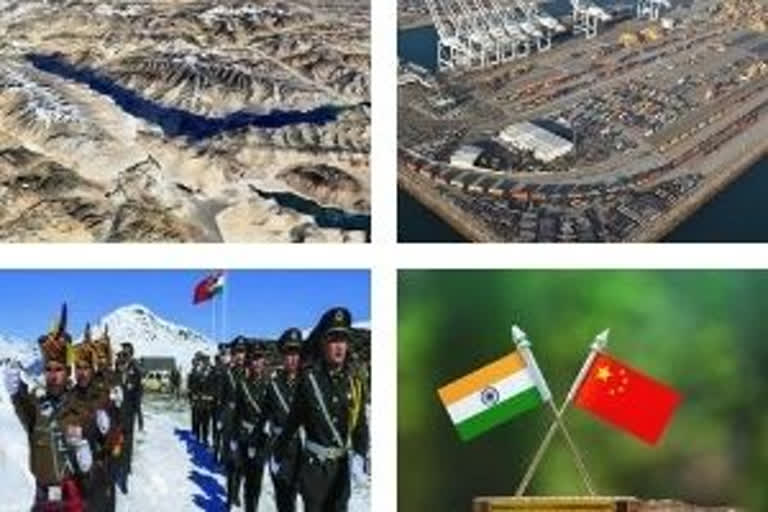New Delhi: To expand its market base in the energy-rich central Asian countries, India has always been eager to explore shortest trade routes to these destinations.
In this scheme of things, Iran appeared to be a natural partner, given its geographical position. The trade relations between the two through the Chahabar Port would enable India to enhance its trade links with central Asian nations. For which India wanted to establish a trade route with Afghanistan bypassing Pakistan, which was possible only through Chahabar, as Iran and Afghanistan are connected to each other through a landroute. Iran and India, on the other hand, have sea and air connectivity only.
Afghanistan, a landlocked nation, mostly dependent on Pakistan for exporting goods. It also wanted to reduce its dependence on Pakistan by establishing diverse trade routes. But their hunt for alternate trade routes ended with the death of Qassem Soleimani, the legendary Iranian general popular in Afghanistan’s northern regions and the leader of Quds Force, the foreign military wing of the elite Islamic Revolutionary Guards (IRG).
Soleimani had played a role in building trade relations among the three countries through the port. He was highly popular among Hazaras, the shiite Afghan minority, which potentially made him the man who could persuade the Afghan leadership to join hands with Iran and India. "Qassem was the man who actually designed and implemented the plan and brought the three countries together," said Iranian envoy and Consul General of Iran in Hyderabad, Mohammad Haghbin Ghomi to this author.
Also read:Indian Army's challenges in Ladakh where logistics hold the key
The IRG, a group proscribed by the US, was a dilemma for India. Any proximity with it would have spoiled relations with the US. Qassem’s involvement in trade-related developments was very low-key. Chabahar Port, which is hardly 68 kilometers from Pakistan’s Gawadhar Port, is situated in the Sistan province. It was the main attraction for the Afghan government as the agreement between the three countries--- India, Iran and Afghanistan---allowed Afghanistan to use the port against a minimal amount to be paid to India. The port gives India access to Afghanistan and to other Central Asian nations bypassing Pakistan.
It also reduces Pakistan’s economic importance for Afghanistan by allowing it’s goods to move through an alternate route. A decade ago, road connectivity was established between Chabahar to Afghanistan, which connects it with Herat and Kandhar in the south of the country. The road also connects Kabul and northern part of the country that is dominated by Hazaras. The rail link, India planned to construct from Chabahar to Afghanistan would have benefited Afghanistan, Iran and India equally had the construction work started on time.
